第11章 IV(6)
But Silas, since he could not share, was presently of opinion that this was enough for one sitting, and he tramped heavily upon the porch. This brought Bertie back to the world of reality, and word was given to fetch the gelding. The host was in no mood to part with them, and spoke of comfortable beds and breakfast as early as they liked; but Bertie had become entirely responsible. Billy was helped in, Silas was liberally thanked, and they drove away beneath the stars, leaving behind them golden opinions, and a host who decided not to disturb his helpmate by retiring to rest in their conjugal bed.
Bertie had forgotten, but the playful gelding had not. When they came abreast of that gate where Diggs of the Bird-in-Hand had met them at sunset, Bertie was only aware that a number of things had happened at once, and that he had stopped the horse after about twenty yards of battle. Pride filled him, but emptied away in the same instant, for a voice on the road behind him spoke inquiringly through the darkness.
"Did any one fall out?" said the voice. "Who fell out?"
"Billy!" shrieked Bertie, cold all over. "Billy, are you hurt "
"Did Billy fall out?" said the voice, with plaintive cadence. "Poor Billy!"
"He can't be," muttered Bertie. "Are you?" he loudly repeated.
There was no answer: but steps came along the road as Bertie checked and pacified the gelding. Then Billy appeared by the wheel. "Poor Billy fell out," he said mildly. He held something up, which Bertie took. It had been Billy's straw hat, now a brimless fabric of ruin. Except for smirches and one inexpressible rent which dawn revealed to Bertie a little later, there were no further injuries, and Billy got in and took his seat quite competently.
Bertie drove the gelding with a firm hand after this. They passed through the cool of the unseen meadow swamps, and heard the sound of the hollow bridges as they crossed them, and now and then the gulp of some pouring brook. They went by the few lights of Mattapan, seeing from some points on their way the beacons of the harbor, and again the curving line of lamps that drew the outline of some village built upon a hill. Dawn showed them Jamaica Pond, smooth and breezeless, and encircled with green skeins of foliage, delicate and new. Here multitudinous birds were chirping their tiny, overwhelming chorus. When at length, across the flat suburban spaces, they again sighted Memorial tower, small in the distance, the sun was lighting it.
Confronted by this, thoughts of hitherto banished care, and of the morrow that was now to-day, and of Philosophy 4 coming in a very few hours, might naturally have arisen and darkened the end of their pleasant excursion. Not so, however. Memorial tower suggested another line of argument. It was Billy who spoke, as his eyes first rested upon that eminent pinnacle of Academe.
"Well, John owes me five dollars."
"Ten, you mean."
"Ten? How?"
"Why, her hair. And it was easily worth twenty."
Billy turned his head and looked suspiciously at Bertie. "What did I do?" he asked.
"Do! Don't you know?"
Billy in all truth did not, "Phew!" went Bertie. "Well, I don't, either. Didn't see it. Saw the consequences, though. Don't you remember being ready to apologize? What do you remember, anyhow?"
Billy consulted his recollections with care: they seemed to break off at the champagne. That was early. Bertie was astonished. Did not Billy remember singing "Brace up and dress the Countess," and "A noble lord the Earl of Leicester"? He had sung them quite in his usual manner, conversing freely between whiles. In fact, to see and hear him, no one would have suspected-- "It must have been that extra silver-fizz you took before dinner," said Bertie. "Yes," said Billy;" that's what it must have been." Bertie supplied the gap in his memory,--a matter of several hours, it seemed. During most of this time Billy had met the demands of each moment quite like his usual agreeable self--a sleep-walking state. It was only when the hair incident was reached that his conduct had noticeably crossed the line. He listened to all this with interest intense.
"John does owe me ten, I think," said he.
"I say so," declared Bertie. "When do you begin to remember again?"
"After I got in again at the gate. Why did I get out?"
"You fell out, man."
Billy was incredulous.
"You did. You tore your clothes wide open."
Billy, looking at his trousers, did not see it.
"Rise, and I'll show you," said Bertie.
"Goodness gracious!" said Billy.
Thus discoursing, they reached Harvard Square. Not your Harvard Square, gentle reader, that place populous with careless youths and careful maidens and reticent persons with books, but one of sleeping windows and clear, cool air and few sounds; a Harvard Square of emptiness and conspicuous sparrows and milk wagons and early street-car conductors in long coats going to their breakfast; and over all this the sweetness of the arching elms.
As the gelding turned down toward Pike's, the thin old church clock struck. "Always sounds," said Billy, "like cambric tea."
"Cambridge tea," said Bertie.
"Walk close behind me," said Billy, as they came away from the livery stable. "Then they won't see the hole."
Bertie did so; but the hole was seen by the street-car conductors and the milkmen, and these sympathetic hearts smiled at the sight of the marching boys, and loved them without knowing any more of them than this. They reached their building and separated.